Unsalted Hazelnuts and Peanuts: A Nutritional Powerhouse Introduction: Unsalted hazelnuts and peanuts are globally consumed nuts that offer a range of health benefits. These nutrient-dense foods are packed with essential vitamins, minerals, and antioxidants that contribute to overall well-being. This article provides an overview of unsalted hazelnuts and peanuts, exploring their nutritional values, potential health benefits, culinary applications, and considerations for consumption. Nutritional Profile: Unsalted Hazelnuts: Hazelnuts are a rich source of healthy fats, dietary fiber, protein, vitamins, and minerals. They contain heart-healthy monounsaturated fats, including oleic acid, which can help lower LDL (bad) cholesterol levels. Hazelnuts are an excellent source of vitamin E, a potent antioxidant that protects against oxidative stress and inflammation. They also provide key minerals like magnesium, potassium, and calcium, which contribute to bone health and muscle function. Lastly, hazelnuts pack a significant amount of dietary fiber, supporting digestive health and promoting satiety. Unsalted Peanuts: Peanuts, too, are abundant in essential nutrients. They are packed with protein, which plays a vital role in building and repairing body tissues. Peanuts are a plant-based source of fat, containing mainly monounsaturated and polyunsaturated fats that help maintain heart health.
nuts
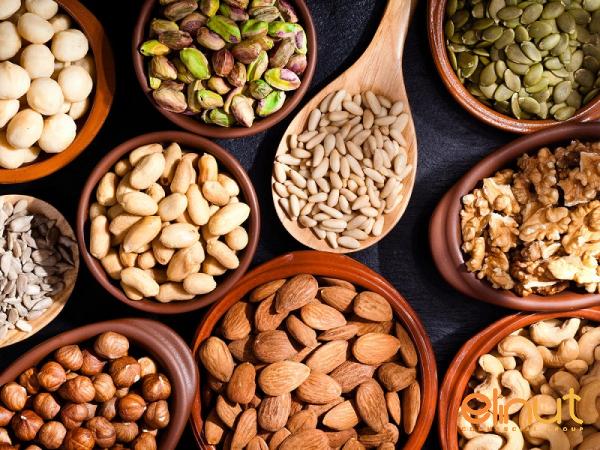 Additionally, peanuts are loaded with a variety of vitamins, including B vitamins such as niacin and folate, which are important for energy metabolism and overall brain function. The high fiber content in peanuts aids in digestion and assists in maintaining healthy gut flora. Potential Health Benefits: Cardiovascular Health: Both unsalted hazelnuts and peanuts possess heart-protective properties. The monounsaturated fats found in these nuts can help lower LDL cholesterol levels while increasing HDL (good) cholesterol levels. These actions contribute to reduced risk of heart disease and stroke. Moreover, the presence of antioxidants and other bioactive compounds in hazelnuts and peanuts, such as flavonoids and resveratrol, may help improve cardiovascular health by reducing inflammation and oxidative stress. Weight Management: Despite their relatively high caloric content, unsalted hazelnuts and peanuts can support weight management. The combination of dietary fiber and healthy fats in these nuts promotes feelings of fullness and satiety, helping to control appetite and reduce cravings. Including them in a balanced diet may assist in maintaining a healthy weight or even aid in weight loss when consumed in moderation. Diabetes Management: Both hazelnuts and peanuts have a low glycemic index, meaning they have a minimal impact on blood sugar levels. This makes them suitable snack options for individuals with diabetes or those seeking to prevent the development of the disease. Additionally, the healthy fats and fiber content in these nuts help slow down the release of glucose into the bloodstream, further contributing to better blood sugar control. Bone Health: Unsalted hazelnuts and peanuts provide valuable minerals like magnesium, potassium, and calcium, which contribute to maintaining healthy bones and teeth.
Additionally, peanuts are loaded with a variety of vitamins, including B vitamins such as niacin and folate, which are important for energy metabolism and overall brain function. The high fiber content in peanuts aids in digestion and assists in maintaining healthy gut flora. Potential Health Benefits: Cardiovascular Health: Both unsalted hazelnuts and peanuts possess heart-protective properties. The monounsaturated fats found in these nuts can help lower LDL cholesterol levels while increasing HDL (good) cholesterol levels. These actions contribute to reduced risk of heart disease and stroke. Moreover, the presence of antioxidants and other bioactive compounds in hazelnuts and peanuts, such as flavonoids and resveratrol, may help improve cardiovascular health by reducing inflammation and oxidative stress. Weight Management: Despite their relatively high caloric content, unsalted hazelnuts and peanuts can support weight management. The combination of dietary fiber and healthy fats in these nuts promotes feelings of fullness and satiety, helping to control appetite and reduce cravings. Including them in a balanced diet may assist in maintaining a healthy weight or even aid in weight loss when consumed in moderation. Diabetes Management: Both hazelnuts and peanuts have a low glycemic index, meaning they have a minimal impact on blood sugar levels. This makes them suitable snack options for individuals with diabetes or those seeking to prevent the development of the disease. Additionally, the healthy fats and fiber content in these nuts help slow down the release of glucose into the bloodstream, further contributing to better blood sugar control. Bone Health: Unsalted hazelnuts and peanuts provide valuable minerals like magnesium, potassium, and calcium, which contribute to maintaining healthy bones and teeth.
Specifications of nuts
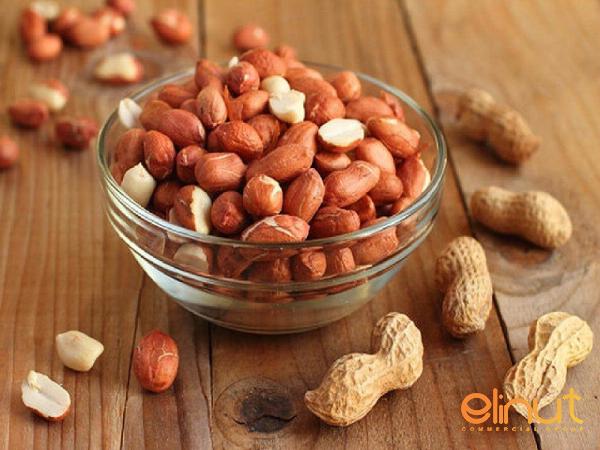 These minerals play a crucial role in bone formation, density, and strength. Consuming these nuts as part of a balanced diet can be beneficial for individuals at risk of osteoporosis or looking to support their skeletal system. Culinary Applications: Unsalted hazelnuts and peanuts offer versatility in culinary applications and can add flavor, texture, and richness to various dishes. Here are some creative ways to incorporate them into your meals: 1. Nut Butters: Roasted unsalted hazelnuts and peanuts can be processed into smooth or chunky nut butters, providing a nutritious alternative to commercial spreads that often contain added sugar and unhealthy fats. 2. Baking: Chopped unsalted hazelnuts and peanuts can enhance the taste and nutritional value of baked goods, such as cookies, cakes, and muffins. 3. Salads: Sprinkle roasted unsalted hazelnuts or peanuts onto salads to add a delightful crunch, along with their nutritional benefits. 4. Granola and Trail Mixes: Unsalted hazelnuts and peanuts can be combined with other dried fruits, seeds, and grains to create delicious and energy-boosting granola and trail mixes. 5. Stir-Fries: Add toasted unsalted peanuts to stir-fries or Asian-inspired dishes to bring a delightful nutty flavor and crunchy texture. Considerations for Consumption: While unsalted hazelnuts and peanuts offer numerous health benefits, it is important to keep certain factors in mind: 1. Allergies: Hazelnuts and peanuts are common allergens, and individuals with allergies or sensitivities should avoid consuming them. 2. Portion Control: Both nuts are calorie-dense, so moderation is key, particularly for those on a calorie-restricted diet. 3. Roasting and Processing: Roasted unsalted hazelnuts and peanuts may lose some of their nutritional content, especially vitamin E. Opt for raw, unsalted varieties whenever possible. 4. Sodium Intake: Unsalted versions of hazelnuts and peanuts are the healthier choice, as excessive sodium intake is associated with adverse health effects. Conclusion: Unsalted hazelnuts and peanuts are powerhouses of nutrition, providing an array of essential vitamins, minerals, fiber, and healthy fats. Their consumption has been linked to various health benefits, ranging from maintaining cardiovascular health to supporting weight management and improving bone health. Incorporating these nuts into a balanced diet, in moderation, can provide a delicious and nutritious way to enhance both taste and overall well-being. However, individuals with allergies, those on sodium-restricted diets, or those needing to monitor their calorie intake should exercise caution and consume these nuts in consultation with their healthcare provider.Title: Unsalted Hazelnuts and Peanuts: A Nutritional Powerhouse Introduction: Unsalted hazelnuts and peanuts are globally consumed nuts that offer a range of health benefits. These nutrient-dense foods are packed with essential vitamins, minerals, and antioxidants that contribute to overall well-being.
These minerals play a crucial role in bone formation, density, and strength. Consuming these nuts as part of a balanced diet can be beneficial for individuals at risk of osteoporosis or looking to support their skeletal system. Culinary Applications: Unsalted hazelnuts and peanuts offer versatility in culinary applications and can add flavor, texture, and richness to various dishes. Here are some creative ways to incorporate them into your meals: 1. Nut Butters: Roasted unsalted hazelnuts and peanuts can be processed into smooth or chunky nut butters, providing a nutritious alternative to commercial spreads that often contain added sugar and unhealthy fats. 2. Baking: Chopped unsalted hazelnuts and peanuts can enhance the taste and nutritional value of baked goods, such as cookies, cakes, and muffins. 3. Salads: Sprinkle roasted unsalted hazelnuts or peanuts onto salads to add a delightful crunch, along with their nutritional benefits. 4. Granola and Trail Mixes: Unsalted hazelnuts and peanuts can be combined with other dried fruits, seeds, and grains to create delicious and energy-boosting granola and trail mixes. 5. Stir-Fries: Add toasted unsalted peanuts to stir-fries or Asian-inspired dishes to bring a delightful nutty flavor and crunchy texture. Considerations for Consumption: While unsalted hazelnuts and peanuts offer numerous health benefits, it is important to keep certain factors in mind: 1. Allergies: Hazelnuts and peanuts are common allergens, and individuals with allergies or sensitivities should avoid consuming them. 2. Portion Control: Both nuts are calorie-dense, so moderation is key, particularly for those on a calorie-restricted diet. 3. Roasting and Processing: Roasted unsalted hazelnuts and peanuts may lose some of their nutritional content, especially vitamin E. Opt for raw, unsalted varieties whenever possible. 4. Sodium Intake: Unsalted versions of hazelnuts and peanuts are the healthier choice, as excessive sodium intake is associated with adverse health effects. Conclusion: Unsalted hazelnuts and peanuts are powerhouses of nutrition, providing an array of essential vitamins, minerals, fiber, and healthy fats. Their consumption has been linked to various health benefits, ranging from maintaining cardiovascular health to supporting weight management and improving bone health. Incorporating these nuts into a balanced diet, in moderation, can provide a delicious and nutritious way to enhance both taste and overall well-being. However, individuals with allergies, those on sodium-restricted diets, or those needing to monitor their calorie intake should exercise caution and consume these nuts in consultation with their healthcare provider.Title: Unsalted Hazelnuts and Peanuts: A Nutritional Powerhouse Introduction: Unsalted hazelnuts and peanuts are globally consumed nuts that offer a range of health benefits. These nutrient-dense foods are packed with essential vitamins, minerals, and antioxidants that contribute to overall well-being.
Buy nuts
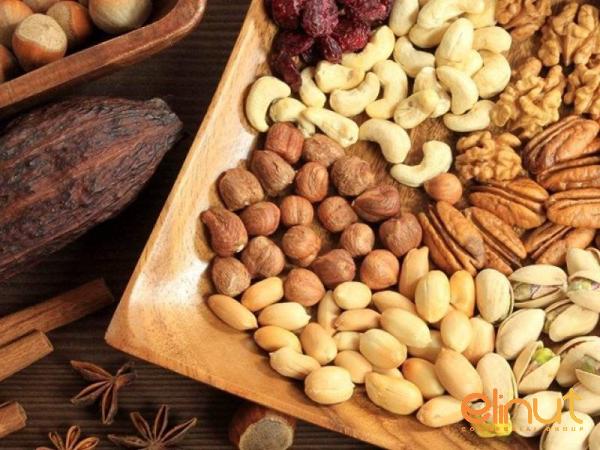 This article provides an overview of unsalted hazelnuts and peanuts, exploring their nutritional values, potential health benefits, culinary applications, and considerations for consumption. In addition, we will delve into the business aspects surrounding the production and marketing of these popular nuts. 1. Production and Supply Chain: The production and supply chain of unsalted hazelnuts and peanuts play a significant role in the availability and accessibility of these nuts in the market. Hazelnuts are primarily grown in countries like Turkey, Italy, and the United States, while peanuts are predominantly cultivated in China, India, and the United States. Understanding the supply chain enables businesses to identify potential sources, assess the quality of the nuts, and establish reliable partnerships with suppliers. 2. Marketing and Branding: Effective marketing and branding strategies are essential for businesses that deal with unsalted hazelnuts and peanuts. It involves developing a unique selling proposition, building a strong brand image, and reaching out to the target market through various marketing channels. Highlighting the health benefits and versatility of these nuts can attract health-conscious consumers who prioritize their well-being while encouraging them to incorporate unsalted hazelnuts and peanuts into their diet. 3. Packaging and Labeling: Packaging and labeling play a crucial role in the presentation and sale of unsalted hazelnuts and peanuts. Businesses must ensure that the packaging is attractive, informative, and durable, maintaining the quality and freshness of the nuts. Labels should include nutritional information, allergen warnings, and appropriate certifications (such as organic or non-GMO) to provide transparency to consumers seeking specific dietary preferences. 4. Health Food Store Partnerships: Collaborating with health food stores is a smart business strategy to reach the target market interested in purchasing unsalted hazelnuts and peanuts. Forming partnerships with health food retailers allows businesses to showcase their products in a trusted environment and expands their customer base. Additionally, businesses can offer special promotions or educational materials at partnering stores to educate consumers about the health benefits of these nuts. 5. Online Distribution Channels: Establishing a strong online presence is vital in today’s digital age. This includes having an e-commerce website or partnering with established online marketplaces to make unsalted hazelnuts and peanuts readily available to consumers. Offering a seamless online shopping experience, secure payment options, and prompt delivery can boost customer satisfaction and loyalty. 6. Food Service Industry: The food service industry offers numerous opportunities for businesses dealing with unsalted hazelnuts and peanuts.
This article provides an overview of unsalted hazelnuts and peanuts, exploring their nutritional values, potential health benefits, culinary applications, and considerations for consumption. In addition, we will delve into the business aspects surrounding the production and marketing of these popular nuts. 1. Production and Supply Chain: The production and supply chain of unsalted hazelnuts and peanuts play a significant role in the availability and accessibility of these nuts in the market. Hazelnuts are primarily grown in countries like Turkey, Italy, and the United States, while peanuts are predominantly cultivated in China, India, and the United States. Understanding the supply chain enables businesses to identify potential sources, assess the quality of the nuts, and establish reliable partnerships with suppliers. 2. Marketing and Branding: Effective marketing and branding strategies are essential for businesses that deal with unsalted hazelnuts and peanuts. It involves developing a unique selling proposition, building a strong brand image, and reaching out to the target market through various marketing channels. Highlighting the health benefits and versatility of these nuts can attract health-conscious consumers who prioritize their well-being while encouraging them to incorporate unsalted hazelnuts and peanuts into their diet. 3. Packaging and Labeling: Packaging and labeling play a crucial role in the presentation and sale of unsalted hazelnuts and peanuts. Businesses must ensure that the packaging is attractive, informative, and durable, maintaining the quality and freshness of the nuts. Labels should include nutritional information, allergen warnings, and appropriate certifications (such as organic or non-GMO) to provide transparency to consumers seeking specific dietary preferences. 4. Health Food Store Partnerships: Collaborating with health food stores is a smart business strategy to reach the target market interested in purchasing unsalted hazelnuts and peanuts. Forming partnerships with health food retailers allows businesses to showcase their products in a trusted environment and expands their customer base. Additionally, businesses can offer special promotions or educational materials at partnering stores to educate consumers about the health benefits of these nuts. 5. Online Distribution Channels: Establishing a strong online presence is vital in today’s digital age. This includes having an e-commerce website or partnering with established online marketplaces to make unsalted hazelnuts and peanuts readily available to consumers. Offering a seamless online shopping experience, secure payment options, and prompt delivery can boost customer satisfaction and loyalty. 6. Food Service Industry: The food service industry offers numerous opportunities for businesses dealing with unsalted hazelnuts and peanuts.
nuts + buy and sell
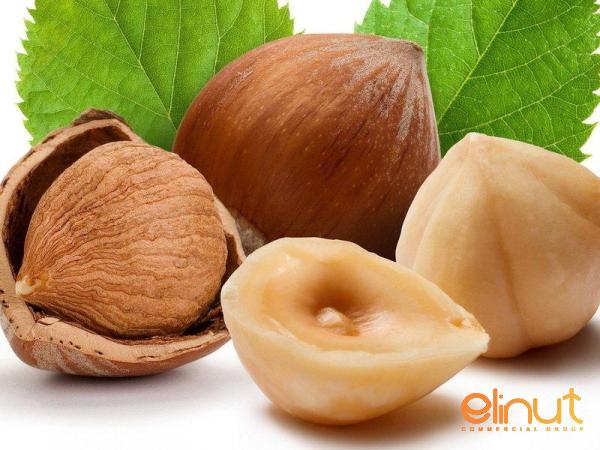 Restaurants, cafes, and bakeries can incorporate these nuts into their menu offerings, catering to health-conscious diners looking for nutritious and delicious options. Collaborating with food service providers can lead to bulk orders, providing a consistent revenue stream for businesses. 7. Snack Manufacturer Partnerships: Collaborating with snack manufacturers can open doors for including unsalted hazelnuts and peanuts in a variety of snack products, such as granola bars, trail mixes, or nut butter spreads. Joint ventures or licensing agreements with established snack manufacturers can help expand market reach, increase brand visibility, and tap into new customer segments. 8. Research and Development: Investing in research and development allows businesses to innovate and create new products or flavor combinations using unsalted hazelnuts and peanuts. Conducting market research, analyzing consumer trends, and experimenting with different formulations can lead to the development of unique and appealing nut-based products, giving businesses a competitive edge in the market. 9. Sustainability and Responsible Sourcing: Businesses in the unsalted hazelnuts and peanuts industry have a responsibility to prioritize sustainability and ethical sourcing practices. Identifying suppliers who adhere to sustainable farming methods, fair trade practices, and support local farmers can contribute to the positive image of the business. Implementing environmentally-friendly packaging and shipping practices also demonstrates a commitment to sustainability. 10. Nut Allergy Alternatives: Considering the prevalence of nut allergies, businesses can explore alternative products or offerings for customers who cannot consume unsalted hazelnuts and peanuts. This may involve developing nut-free products or identifying substitutes such as seed butters or alternative nut varieties that do not pose the same allergenic risks. Conclusion: Unsalted hazelnuts and peanuts are not only nutritious options for individuals seeking a healthy diet, but they also present business opportunities in various sectors of the food industry. Understanding the production process, effective marketing strategies, packaging and labeling considerations, forging partnerships, and embracing research and development can help businesses thrive in this sector. Moreover, focusing on sustainability and catering to diverse dietary needs ensures responsible and inclusive practices, further enhancing the brand’s reputation. By capitalizing on the popularity and health benefits of unsalted hazelnuts and peanuts, businesses can tap into a lucrative market and contribute to the well-being of consumers worldwide.
Restaurants, cafes, and bakeries can incorporate these nuts into their menu offerings, catering to health-conscious diners looking for nutritious and delicious options. Collaborating with food service providers can lead to bulk orders, providing a consistent revenue stream for businesses. 7. Snack Manufacturer Partnerships: Collaborating with snack manufacturers can open doors for including unsalted hazelnuts and peanuts in a variety of snack products, such as granola bars, trail mixes, or nut butter spreads. Joint ventures or licensing agreements with established snack manufacturers can help expand market reach, increase brand visibility, and tap into new customer segments. 8. Research and Development: Investing in research and development allows businesses to innovate and create new products or flavor combinations using unsalted hazelnuts and peanuts. Conducting market research, analyzing consumer trends, and experimenting with different formulations can lead to the development of unique and appealing nut-based products, giving businesses a competitive edge in the market. 9. Sustainability and Responsible Sourcing: Businesses in the unsalted hazelnuts and peanuts industry have a responsibility to prioritize sustainability and ethical sourcing practices. Identifying suppliers who adhere to sustainable farming methods, fair trade practices, and support local farmers can contribute to the positive image of the business. Implementing environmentally-friendly packaging and shipping practices also demonstrates a commitment to sustainability. 10. Nut Allergy Alternatives: Considering the prevalence of nut allergies, businesses can explore alternative products or offerings for customers who cannot consume unsalted hazelnuts and peanuts. This may involve developing nut-free products or identifying substitutes such as seed butters or alternative nut varieties that do not pose the same allergenic risks. Conclusion: Unsalted hazelnuts and peanuts are not only nutritious options for individuals seeking a healthy diet, but they also present business opportunities in various sectors of the food industry. Understanding the production process, effective marketing strategies, packaging and labeling considerations, forging partnerships, and embracing research and development can help businesses thrive in this sector. Moreover, focusing on sustainability and catering to diverse dietary needs ensures responsible and inclusive practices, further enhancing the brand’s reputation. By capitalizing on the popularity and health benefits of unsalted hazelnuts and peanuts, businesses can tap into a lucrative market and contribute to the well-being of consumers worldwide.



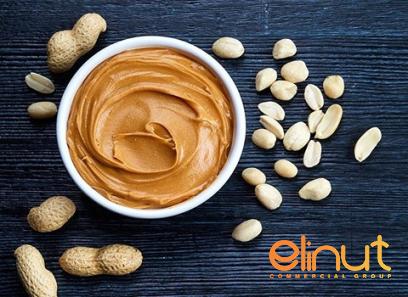
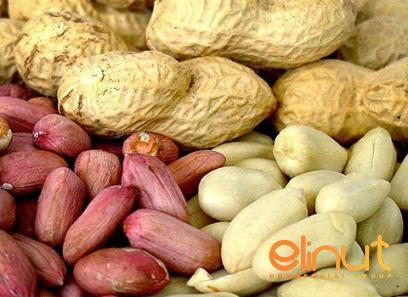
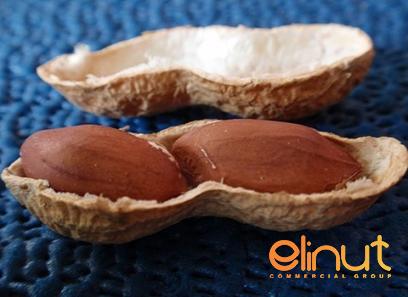
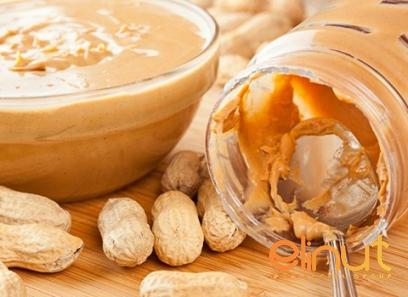
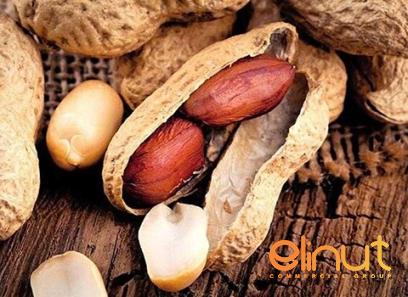
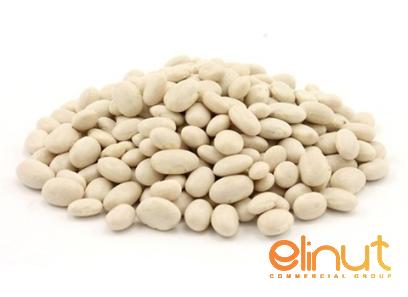

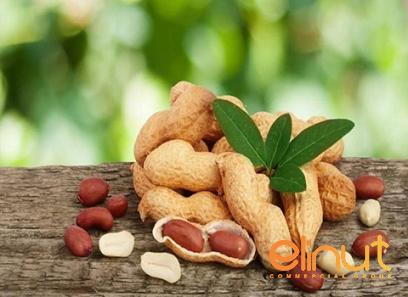
Your comment submitted.